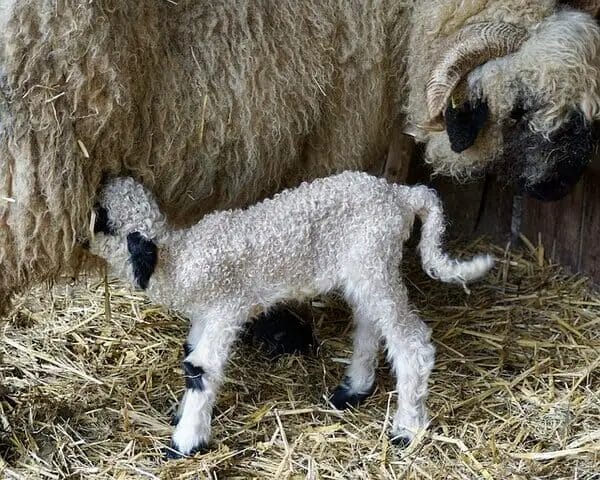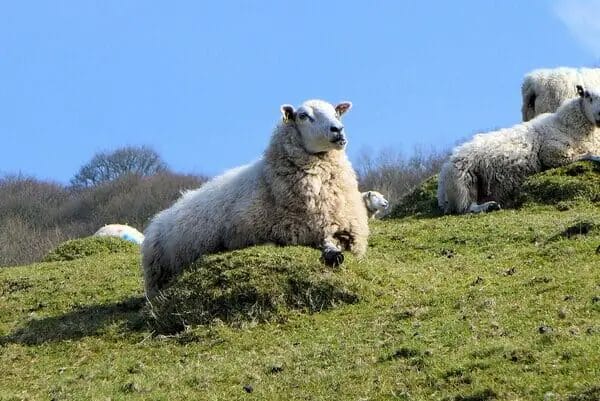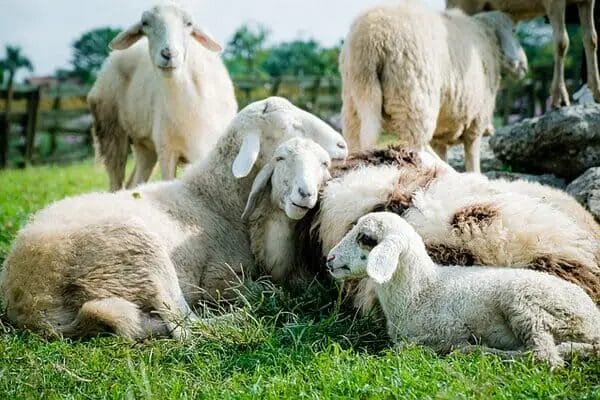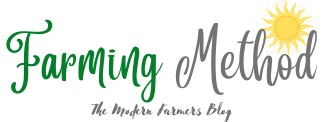The profitable sheep farming and rearing is dependent on feed management. Learn about the nutrition requirements of sheep and managing tips.
Sheep are one of the best domestic animals to raise on a farm. They are a great source of meat, wool, and milk. As they can make themselves adaptive to any environment easily it’s easier to work with them.
Without sufficient nutrition, they can’t thrive or grow. But to have the best outcome from the sheep, nutrition is a must need. Which they get from pasture, by-products, supplementation, etc.
The general nutrition requirement of a sheep’s are-
- Protein,
- Vitamins,
- Fat,
- Fiber,
- Mineral & Salt,
- Carbohydrate,
On the other hand, nutrition isn’t just enough. Cause you have to provide the right nutrition according to their age and growth. Learn more about what do sheep eat?.
For instance, the required nutrition of a baby lamb and grown ram isn’t the same. Likewise, ewe and old sheep have different nutrition requirements.
Feedings Nutrition Requirement of Baby Lambs

- For newborns colostrum the best food.
After the ewe gives birth it’s a major duty to feed the baby lamb colostrum. Colostrum is the first milk that every mammal produces.
It’s non-allergic and non-toxic for baby lambs. Moreover, colostrum provides the newborn with the required nutrition and immune system.
Newborns don’t have an antibody in their bodies. But colostrum provides them with an antibody that combats with any disease and infectious agents.
It also helps them from getting affected by hypothermia. It’s better to give them colostrum within 24 hours. The advantages of the colostrum close before the lamb reaches 48 hours of its birth. On the first day, lambs need 10-12% of their body weight in the colostrum.
The newborns are always at a risk of getting hypothermia.
Hypothermia is defined as low body temperature. Lambs with hypothermia appear gaunt, weak, and hunched up. You can look up some symptoms and be sure if your lamb is hypothermic or not.
The symptoms are trauma, exposure, weakness, starvation. Starvation on the other hand is one of the main factors of getting your lamb ill. Most of the time newborns are sick because of the lack of proper feeding. Starvation leads to hypothermia which can lead your lamb to death also.
To avoid such a horrid thing colostrum is a must.
To make the process more effective provide your lamb with 6-8 ounces of milk per feeding.
Sometimes the newborn gets orphaned after birth or the ewe is reluctant to feed the child. In this regard bottle feed and colostrum of cows can be efficient.
At a point, you need to decide when to wean your newborn. Cause after two weeks the sheep should be trained to eat grass.
Then after six weeks,
It’ll be all accustomed to eating other green roughages like hay, grass, grain, etc. After a month or so your lamb will be ready to take on a concentrated mixture.
Feedings & Nutrition Requirement Pregnant Ewes

Pregnant ewes require special care as they are carrying a baby.
One needs to be careful about their feeding methods. Cause internal parasite can cause disease if a ewe is underfed.
On the other hand, overfeeding the ewes can lead to pregnancy toxemia. Ewe with pregnancy toxemia can give birth to a weaker, lighter baby which is bad for business.
A mid-pregnant ewe needs 20% more feed than a regular ewe to maintain its growth. But ewes that engender twins or, triplets have a special requirement for nutrients.
Cause they produce 20-30% more milk than a normal ewe.
Some essential feeding for ewes during mid and early pregnancy are-
- Prosopis juliflora – Mesquite
- Sesbania grandiflora (hummingbird tree)
- Gliricidia sepium
- Madras thorn
- Lebbeck, Lebbek tree, flea tree, Frywood, Koko, and woman’s tongue tree
- Neem
- When a ewe is pregnant their food consumption level increases gradually.
As a result, they need more protein, minerals, energy than before. Which can’t be provided with only grass, silage, and hay.
Supplementary feeding does an exclusive job of providing the ewes with the necessary nutritional requirements. So supplementary feeding is way important in this stage.
Most people have the wrong idea of predicting that the sheep needs more calories during the period of pregnancy.
- But the thing one needs to really concentrate on is nutrition.
The final 4-7 weeks of a pregnant ewe is really important cause that’s when up to 70% of the lamb development occurs.
In those final weeks, calories are a must need for a sheep.
You can feed maize silage, barley, soybean cake, dried grasses, and maize to pregnant sheep.
And while feeding concentrated feeds be careful of the ingredients that are in it. While choosing any concentrated feed always keep it in mind that if it could provide a sufficient amount of nutrients and protein for your ewe.
Also, look for energizing ingredients like wheat, citrus, maize, barley, soybean meal, groundnut cake, sorghum flour, broken rice, sorghum, etc.
You can use additives in your feed to protect the sheep from disease and other illnesses. Oxytetracycline is one of the additives. It works as an antibiotic that protects the pregnant lamb from any illness.
Nutrition for Meat Productive Sheep

- Meat is one of the main reasons for which people nurture sheep.
Sheep meat is highly nutritious and a great source of protein. So it has a great demand in the local market as well as international.
The quality of the meat depends on the quality of the food. Keeping this in mind the best option to get good meat productive sheep is grazing.
- Sheep’s love grazing.
They prioritize grazing over grainy foods. Further pasture-fed meat is more tender, leaner, and healthier than grain-fed sheep.
And sheep is a ruminant that can consume more grasses and leaves by grazing than other animals. But one has to keep in mind that sheep-like thin grasses.
You can provide them with grasses like , Cowpea, pea, soybean, and pulse.
- Also, sheep prefer fiber to grainy feed.
Some great feed for sheep is dried grasses, soybean cake, dried molasses, wheat roughage, and maize powder.
The feeding gets a lot easier with sheep cause they can eat any type of food, leftover, low-quality leaves, and they are not picky about their feed.
- Vitamins
While providing food for sheep check out if the food contains ingredients like Phosphorus, calcium, selenium, mineral salt, vitamin A, vitamin E, and vitamin D.
You can use additives like probiotics and ionophores. Probiotics improve digestion and immunity where ionophores help with food utilization and digestion.
Feedings For Old Lamb
Older sheep can lose their teeth easily as they are getting weaker day by day.
They don’t have the energy or the stamina like the young ones.
- Losing teeth is one of the painful things for a sheep.
Even if they graze the land as regular but can’t chew grass or hay properly.
As a result, they can’t get proper nutrition from their feed. As they can’t eat grass regularly solid pasture ground is way difficult for them.
One of the common peculiarity of the ruminants are after eating any kinds of leaf, grass, or hay they’ll start cudding after a while.
But
- When a sheep loses its teeth they stop cudding their food.
You should take your sheep to a veterinarian to solve the teeth issue.
Although to save your sheep from losing any teeth you can soak grass hay pellets or maybe chop up the hay which doesn’t require much chewing.
Sometimes losing teeth can’t be the only problem. Some teeth can get too sharp or uncomfortable for the sheep. You can remove the teeth by taking the sheep to a veterinarian.
